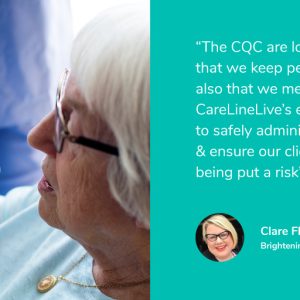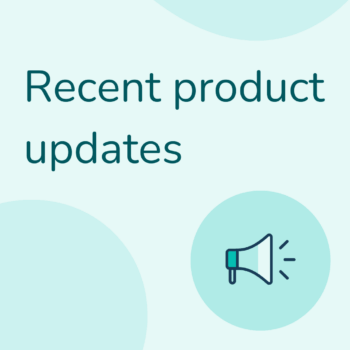During the Care Show, held at London’s Excel on April 30th and 1st May 2025, James Bullion CBE, the Chief Inspector of Adult Social Care and Integrated Care, delivered an engaging and well-received presentation. He provided valuable insights to sector providers regarding the current status of the Care Quality Commission (CQC) and shared their vision for the future.
He acknowledged that the past year has been a significant rollercoaster. This culminated in the regulator’s recognition of the urgent need to rebuild expertise within the Care Quality Commission. Additionally, he observed that the implementation of new technology has not proceeded as expected and their outlook suggests a strong necessity for close collaboration with all stakeholders as they move forward.
He expressed his gratitude to providers for their support of CQC, acknowledging that it is in the collective interest of partners to collaborate effectively. He emphasised the necessity for change and immediate action, advocating for a hybrid approach that combines the expertise of inspectors to expedite inspections. Furthermore, Mr Bullion highlighted that the organisation is moving forward with the reinstatement of relationship managers without delay.
In addition, the CQC Way has prioritised creating clear understanding of its objectives, fostering agreement on the values and behaviours anticipated from the regulator and establishing the fundamental principles that support an effective regulatory approach.
Mr Bullion recognised that the challenges of workforce recruitment and retention remain ongoing issues, especially as the demand for social care continues to grow. He commented that while an increase in registrations and new businesses is positive, the supply is still failing to meet this demand. Additionally, the sector is grappling with financial constraints. Mr Bullion emphasised that the CQC supports The Casey Commission and is actively collaborating with Baroness Casey and her team, whose independence from the Department of Health and Social Care uniquely positions her to broker a way forward.
Mr Bullion referred to the Care Provider Alliance Review, which identified critical challenges in the inspection and assessment processes for care providers. The review made compelling recommendations for enhancing communication, improving training and ensuring more transparent and timely reporting. These initiatives are designed to enhance both the capabilities of care providers and the public’s trust in the quality of care. Currently, there is an emphasis on integrated care and collaboration with all stakeholders involved.
The presentation subsequently shifted focus to wider issues, emphasising the significance of learning from individuals’ experiences. This approach aims to provide the regulator with a clearer understanding of the social care landscape. To accomplish this, it is crucial to enhance inspection activities. Over the past year, a total of 3,800 inspections have been carried out, Mr Bullion acknowledged that this number should ideally be three times higher, however, the regulator is on track to meet this year’s target.
The presentation underscored several critical issues, including the challenges posed by the single assessment framework, IT related concerns and the backlogs in registration and inspection processes. It also addressed the need to maintain a national care service while tackling the unequal access to care and support experienced by various groups. Notably, individuals living with autism were identified as a specific demographic facing these challenges.
CQC technology
Although some of the technology features are now working well, the independent review outlined the extent of the issues that led to the failure of the new technology, as well as the broader impact of this transformation on the Care Quality Commission which included:
- Technical challenges related to the regulatory platform and provider portal
- Cultural issues with concerns not being listened to which had a negative health impact
- Data, despite its critical significance, had been undervalued
- The anticipated advantages of the new technology have yet to be fully realised
Highlighted were recommendations across five broad areas:
- Culture
- Governance
- Operating model
- Change management
- Data and digital
The recommendations covered the need to:
- Foster a culture that recognises data as essential and strategically significant
- Ensure that leadership and governance are robust, with clearly defined roles and responsibilities
- Engage with both internal and external stakeholders, ensuring that the feedback from CQC staff and partners is not only heard but also acted upon effectively
- Adhere to best practices and industry standards
Recruitment
- Recruitment is progressing for four Chief Inspectors
- First Chief Inspector of Mental Health has been appointed, Dr Arun Chopra
Backlogs
- The backlog of registrations has been reduced, with 25% of registrations going over the 10 week registration process. It was reiterated that this figure in the main, is down to complications with some registrations
- Steps have been taken to address the backlog of inspections in order to meet demand and to prioritise services that have not undergone inspection for an extended period
Inspection
CQC are taking immediate action to ensure that they can:
- Publish reports
- Carry out more assessments
- Take immediate action regarding information related to concerns and notifications
- Ensure the appropriate systems and tools are established to effectively support regulatory activities
Single assessment framework
The regulator is currently evaluating the single assessment framework to enhance both its structure and methodology including:
- Reviewing the content of the framework
- Developing ratings, characteristics and supporting guidance
- Reviewing their approach to ratings judgements
- Discontinuing scoring at evidence category level
- There is a review of each quality statement and how they will be used for each assessment
- A review will be conducted regarding the quantity of quality statements
- A review is taking place to assess how professional judgement is used when producing a final rating
Timeframes
- Summer 2025: CQC will release sector specific guidance for providers
- Summer 2025 CQC: is developing a ten year plan which will be published in
- Autumn 2025: there will be a substantial update on the Single Assessment Framework
What does the future hold for home care providers?
Home care providers are likely to encounter increased scrutiny and elevated expectations. However, they can also anticipate greater support and clearer guidance as the CQC reforms engage more closely with providers, service users and the government.
Preparing for the future
To successfully navigate the evolving landscape of the home care sector, providers should adopt a range of strategic approaches. Key strategies include investing in digital tools to enhance data collection and client feedback, providing staff training focused on data-driven care and actively engaging with local health systems to ensure that services are aligned with community objectives.
Additionally, regular policy reviews are essential to promote equity and inclusion in care practices, along with active participation in Care Quality Commission consultations. By adopting these strategies, home care providers can enhance service quality and contribute to a more integrated health and social care system in England.
The Single Assessment Framework has been implemented to standardise evaluations across all care services. Home care providers must familiarise themselves with this new framework as it evolves and ensure that their internal quality assurance processes are aligned accordingly. Providers must also prepare for assessments that may encompass a range of methodologies, including virtual evaluations. Furthermore, they need to examine the application of quality statements within these assessments and assess the significance of professional judgement in determining final ratings.
The Care Quality Commission is enhancing its regulatory approach by forming advisory groups and soliciting feedback from home care providers. Providers are encouraged to engage by participating in these groups to share their insights, offering feedback on regulatory processes to influence future policies, and staying updated on changes to ensure compliance with best practices. This initiative aims to foster increased provider engagement and improve regulatory practices. For more information, providers can visit the CQC homepage.




